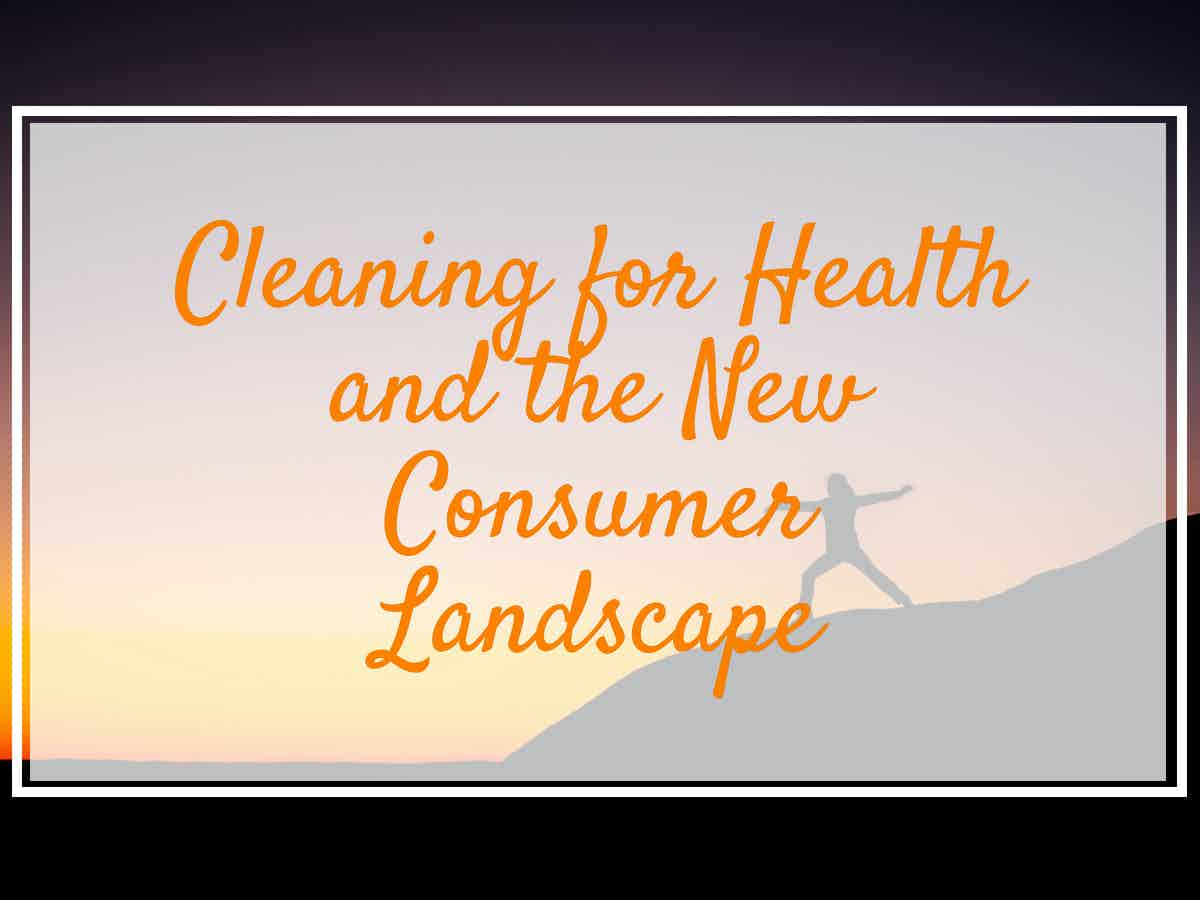Aging demographics, emerging generations with increased spending power, and shifts in post-pandemic shopping and purchasing habits have converged to forge a new consumer landscape, which successful business owners must cater to through a combination of hygienic facilities that provide safe and healthy shopping experiences, and cleaning practices that communicate environmental stewardship.

New Consumer Landscape Impacts Facility Hygiene Demands
The modern consumer landscape has fundamentally transformed through a series of shifting dynamics due to aging, increased spending power, life changes, and post-pandemic purchasing priorities.
Two areas where fundamental shifts in the consumer landscape will impact businesses are increased savings combined with decreased spending;
Irrespective of how secure consumers feel financially, all predict a decline in spending in the next 6–12 months.
And all are prioritizing savings.
The predicted net drop in spending ranges from -35 percent vs. pre-COVID-19, for those who are financially overwhelmed, to -8 percent for the financially secure.
Against this backdrop, all financial segments rate value for money as their key purchase driver.
and an erosion of the public trust in brands and industries.
Trust in brands is eroding, with reputational risk especially precarious if corporate values do not meet those of customers.
Companies must promote a sense of purpose, meeting the safety needs of customers and employees first, while also sharing their commitment to environmental and social policies.
To take on these herculean challenges, successful organizations must commit to addressing consumer concerns regarding germs and facility hygiene and increasing demands for sustainable business cleaning practices.
Americans are Concerned About Germs
It should come as little surprise that American consumers are increasingly concerned about germs in public facilities.
According to a 2020 Healthy Handwashing Survey:
- 60% of respondents stated they were concerned about getting the flu, up from 32% in 2016.
- 80% stated they washed their hands more frequently.
- 48% now avoid shaking someone's hand.
- 93% of respondents stated they employed evasive maneuvers to avoid contact with potentially contaminated surfaces in public, such as;
- 65% use a paper towel when opening a door, and;
- 44% flush the toilet with their foot.
Addressing these concerns requires a combination of:
- Day porter services to wipe down and disinfect commonly touched surfaces throughout the day.
- Increased cleaning frequencies with commercial or hospital-grade products.
- Enhanced cleaning practices that eliminate the potential for surface cross-contamination, and;
- Ongoing communication between custodial teams, business stakeholders, and potential consumers via signage, emails, and other methods.
Emerging Demographics Demand Sustainable Cleaning
Millennials, which bring an estimated $1.4T in buying power to the market, have professed a strong preference for two things that were directly impacted by the COVID-19 pandemic:
- Buying local, and;
- Sustainable business practices.
According to the results of a recent survey conducted by SalesFore;
56% of consumers — and 62% of millenials, the largest consumer segment — say they spend more at small businesses now than they did last year.
While almost half of survey respondents (48%) say most small businesses in their area are struggling, they’re also actively supporting those businesses.
They plan to keep it up, too.
Sixty-seven percent of consumers — and 72% of millennials — say they’re committed to supporting small businesses more than they did pre-pandemic.
Consider this, spending is coming in the midst of an economic crisis in which consumer spending is down overall.
New Data Says Consumers Are Eager To Support Small Businesses, Here’s How To Prepare
With spending down and saving up, local businesses and blue-collar service providers that wish to capitalize on the massive spending power of the millennial consumer demographic--determined to help small local businesses succeed through their post-pandemic struggles--organization leaders will have to focus on creating hygienic and healthy environments that promote environmental stewardship.
For millennials--heirs to a polluted world and workplace--sustainability is far from a marketing buzzword.
According to ISSA;
A recent survey published by Recycling Today (April 6, 2017) conducted on behalf of Rubbermaid Commercial Products discovered that: “Sustainability is important to this generation and is a core value they consider in relation to their career.
Nine in 10 millennials say it is important they work for a sustainable company” and would quit their jobs if they found their employer was not serious about sustainable practices.
Thus, besides relief from petrochemicals, to attract the millennial workforce, a facility’s cleaning protocol must also involve the use of recyclable or re-usable products, such as cotton or microfiber mops and cloths.
References & Resources
Takeaway
As Baby Boomers enter retirement and curtail retail spending in favor of personal health and self-care, Gen X and Millenials--both of whom are considered value-based buyers--are bringing a massive $4T in spending to the market.
To attract these consumers in a dramatically altered landscape, businesses must alleviate fears regarding facility hygiene and the spread of germs while demonstrating real dedication to the future health of the world and the safety of its people through improved cleaning and disinfection practices.
Outsourcing is a simple method for rapidly onboarding critical enhanced cleaning and advanced infection prevention and control services while controlling costs.
Contact us today and discover why Vanguard Cleaning Systems® is the Standard of Clean® for businesses throughout Northwest Arkansas, Missouri, and Oklahoma.
In Oklahoma, dial 918-960-4450
In Arkansas, dial 479-717-2410
In Missouri, dial 417-812-9777

